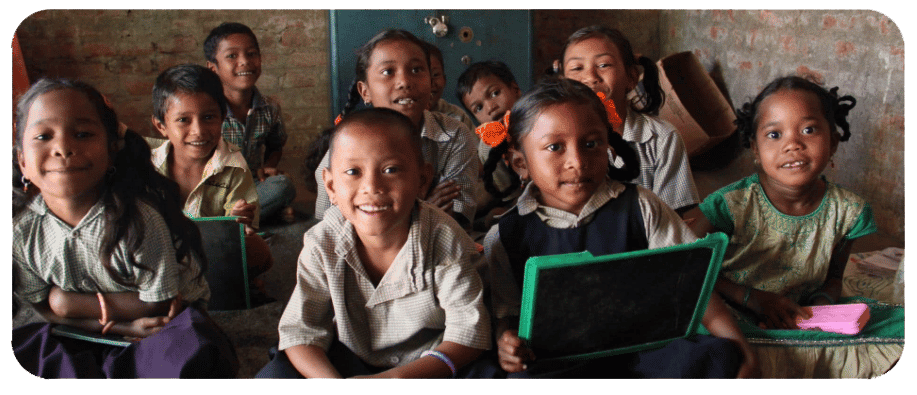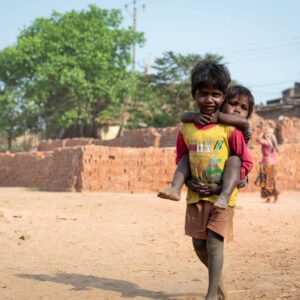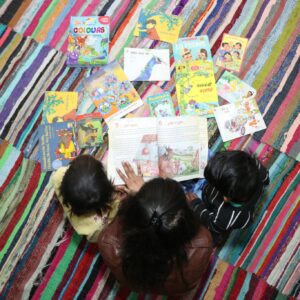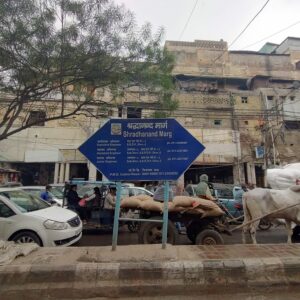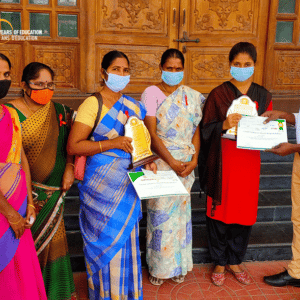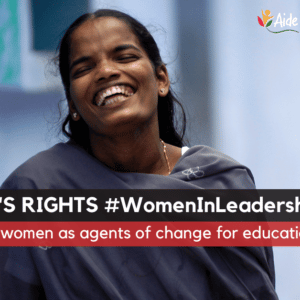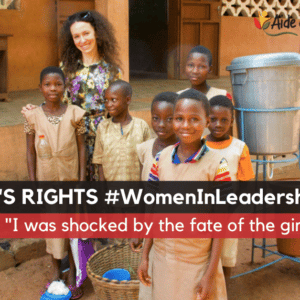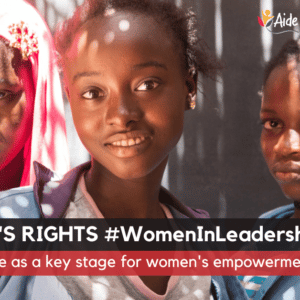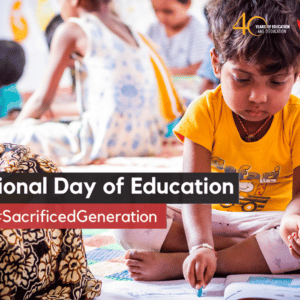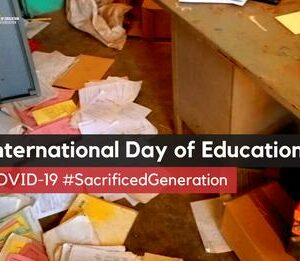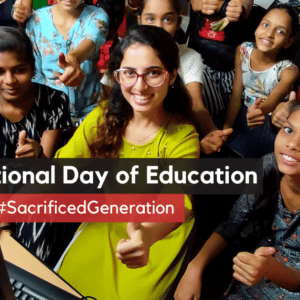The current COVID-19 pandemic and the resulting economic and labor market consequences are severely affecting Indian families. Children are the first to suffer, being pushed into child labor situations. To assess the impact of the crisis on child labor and on their education, Aide et Action carried out an assessment. The results are edifying.
The COVID-19 pandemic was an emergency of enormous scale and extremely unusual. The lockdown to arrest the further spread of the virus had a devastating effect on the socio-economic condition of many countries across the globe. In India, when the communities, especially migrants and their families were recouping from the devastation, the second wave engulfed, and their condition further deteriorated. An assessment conducted by Aide et Action reveals that 50% of migrant children are engaged in work to help their parents to work or are paid workers.
The pandemic has been making an increased impact on the education of migrant children since 2020. As children of seasonal migrant workers spend half of their lives in movement from source to destination there is always the problem of enrolment and retention among them. Since schools are closed, migrant children couldn’t access education either at destination or source. In this context, online classes were the only alternative available. However, migrant children couldn’t afford or access online classes because of locational and technological disadvantages.
A UNESCO report estimates that 40% of children tend to drop out of school post-Covid crisis. The unintended consequence of the current pandemic is the growing need for resources within households, leading to an increase in school dropout rates consequently resulting in child labor.
The Migration Information Resource Centre of Aide et Action conducted a rapid assessment of migrant children across 4 cities in India during April 2020 to understand the impact of the pandemic on their wellbeing and education. It has been found that there is a significant increase in the number of children who are now accompanying parents to the brick kiln worksites due to school closure in their villages (source locations). At the worksites, while there is no facility for their education, children are then exposed to various exploitations including child labor.
The main conclusions of the evaluation carried out among 109 migrant parents in 4 cities (Bhubaneswar, Chennai, Hyderabad, and Patna) are as follows:
- 92% of parents opine that the pandemic has hugely affected the education of their children.
- Prolonged school closure has triggered an increase of 67% of school-going children forced to accompany their parents to the worksites. The number of girl migrant children is 2% higher than the number of boys.
- All the accompanying children in the age group of 3 – 6 years of age (17 percent of the total children) were deprived of pre-school education.
- While 18% of migrant children were out of school during COVID-19 first wave, the rise during the second wave has been a staggering 100%. The impact of school closures has a higher impact on seasonal migrant children than non-migratory children.
- For 44% of parent’s online classes are not affordable
- 28% said their children did not get admission into the school after returning.
- 79% of the parents said they are compelled to bring their children with them to the worksites as schools are closed due to COVID-19.
- 45% of parents opine that the schools should be opened with COVID appropriate precautions, 29% parents said remedial classes will help the children cope up the children to cover the lost schooling.
- As per the assessment, 50% of the migrant children are engaged in labor supporting their parents in work and as paid laborers.
These migrant children are exposed to various forms of exploitation with many of them ending up as child laborers. If education, care, and protection-related support are not provided to these children now, they will never be able to go back to school and drop out of the education system permanently.
Aide et Actions proposition to address the crisis
Aide et Action proposes to initiate an intervention for uninterrupted education and care of migrant children both at source and destination locations in 3 states of India. The intervention focuses on providing emergency nutrition support to the children, particularly returnee migrant children who are most under-nourished.
On the education front, the project will establish Child Care &; Learning Centres with the support of their parents’ employers within the residential area of the migrant workers in the brick kilns. The CCLC will be instrumental in providing pre-primary education to the young migrants and help them in their social, cognitive, and physical development. As the schools are closed due to pandemic, remedial classes will be organized for the returnee migrant children at their source villages adhering to covid-19 appropriate norms. Education volunteers would be engaged who will take the remedial classes to bridge the learning gaps.
Once they return to their respective source villages, all the children will be mainstreamed with government services (nutrition and immunization & education) in their villages. The education volunteers at the source villages will help them in re-enrolment, getting the mid-day meal, and textbooks. At the worksite, the older school-going children (6-14 years) will be enrolled in the neighborhood schools if schools are open. If schools are closed, education volunteers will provide education at the worksites.
The data collected from the baseline survey will be submitted to the concerned government departments to leverage government entitlements like nutrition, mid-day meal, school enrolment, etc., to children, pregnant women, and lactating mothers. Health campaigns at regular intervals would be organized for the migrant children and their families in collaboration with the government and private hospitals for proper COVID-related screening. Immunization, mother and child care, referral of seriously ill migrants would also be carried out in the worksites to prevent them from infection.


